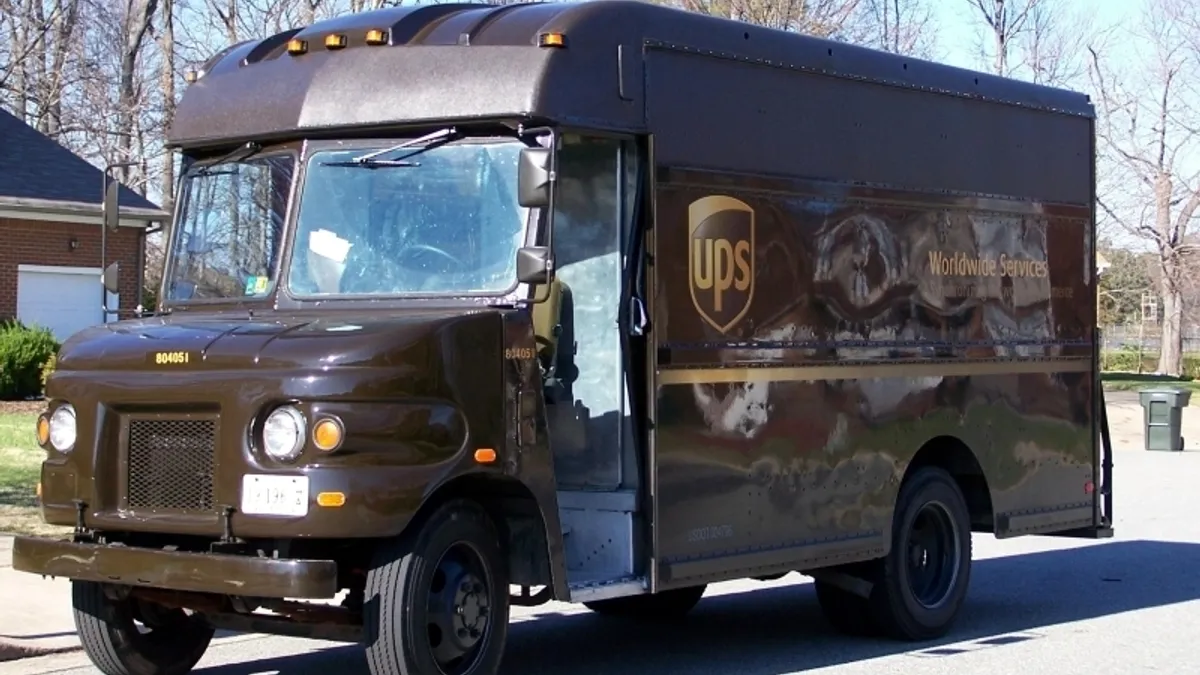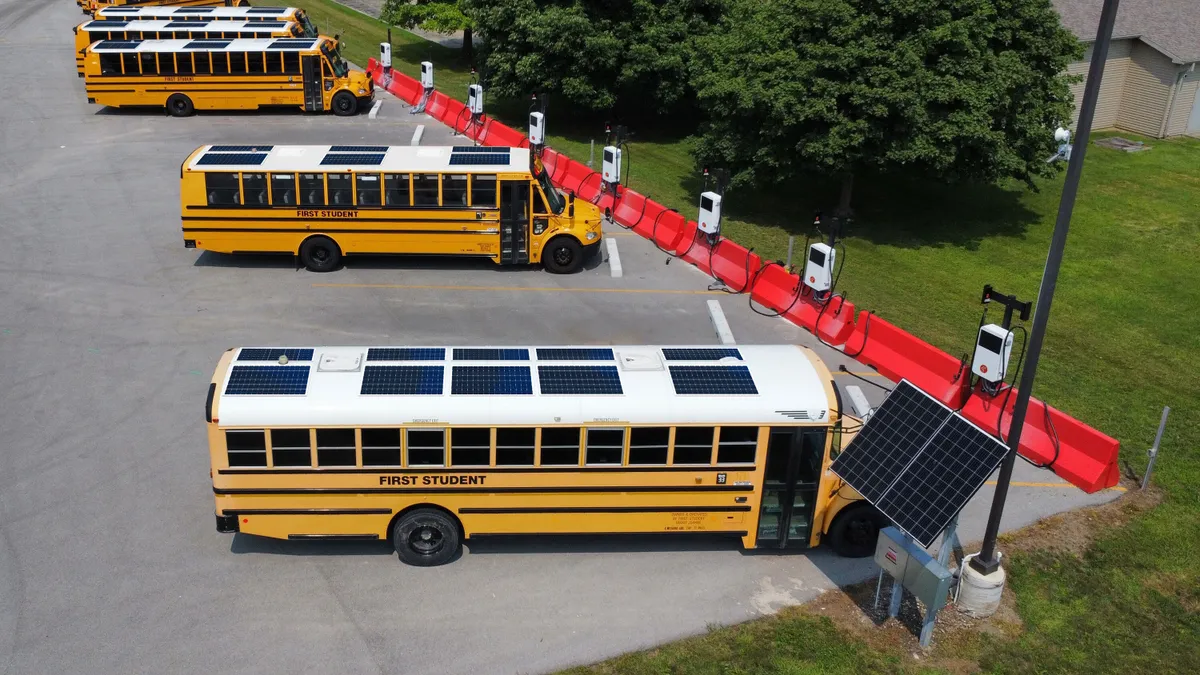The growth of online shopping has helped spur development in the logistics industry for storing, sorting, transporting and delivering purchased goods. But urban areas present unique challenges in that regard, and many logistics companies are worried how that plays into business growth and sustainability, according to a UPS and GreenBiz survey.
The 612 businesses that responded to the survey — 28% of which have annual revenues greater than $1 billion — listed traffic congestion and pollution as their top two concerns about operating in urban environments. Those are problems that most cities already experience, but strategies to improve conditions tend to only focus on residents, such as promoting a variety of mobility options. Although 76% of responding businesses said they are "aware" or "very aware" of operating challenges in urban areas, only 46% reported feeling ready and able to address the issues.
Goods transportation drives a city's economy, not just with e-commerce deliveries to residents and offices, but in a large part with delivery items to restaurants and retail stores. However, few cities have sustainable freight plans. The majority of survey respondents, 72%, reported a desire to work closely with city officials to address urban operating challenges. Businesses sited insufficient collaboration across sectors as the biggest barrier to more efficient and sustainable urban logistics, closely followed by a lack of critical infrastructure.
72% of survey respondents reported a desire to work closely with city officials to address urban operating challenges.

The study suggests that all parties benefit from involving multiple stakeholders from the public and private sectors in municipal decision-making. Failing to do so could cause a well-meaning municipal solution to have detrimental effects on the private sector. For example, when a city wishes to pass a pollution-reducing measure such as a car-free day, it should gain insight about the impact such a measure has on businesses' ability to ship or receive goods. The top stakeholders businesses wish to see included are public transit officials, the city's business owners, logistics services, residents and municipal chief resilience officers.
An example of a well-executed multi-stakeholder approach is New York's Off-Hours Deliveries Program. The city recognized that commercial trucks both cause and suffer from traffic congestion during normal daytime working hours, leading to lost time and revenue, missed deliveries, parking tickets and pollution from idling trucks. The city therefore worked with stakeholders to implement a program in which commercial participants shifted their deliveries times to 7 p.m.-6 a.m. Businesses reported shorter delivery times, lower fuel costs and fewer tickets.
Residents who live in cities tend to order more items online than those in less densely populated areas, and urban customers are more likely to have goods delivered directly to their homes instead of picking up ordered goods at a store. Urban customers also tend to express higher expectations of the speed and reliability of deliveries, the survey notes. For these reasons and others, transportation businesses consistently work toward more efficient solutions for one of their most challenged areas: the "last mile," or getting goods from a transportation hub to their final destinations.
One model in which transport companies are finding success is through consolidated deliveries, where many customers' items can be deposited at one location. For example, Amazon has clusters of lockers in public locations where residents can pick up deliveries or leave returns. Using this system eases the burden on delivery drivers who otherwise would have to travel to and find parking at each individual customer's residence.
Regarding their second-largest concern, pollution, businesses would like to see more of a public-private collaboration on implementing strategies for transportation companies, instead of cities simply focusing on plans for reducing emissions from residential vehicles. Incorporating trucks that run on alternative fuels is one way fleets are already doing this, sometimes at cities' strong recommendations.
Most cities currently don't collect or incorporate large amounts of logistics data, even though many transportation companies track it and have it readily available.

"Logistics is running quite a few natural gas trucks," said Used Truck Association President Craig Kendall. "UPS made a commitment ... FedEx is getting into the natural gas and alternative fuel market as well." He explains that natural gas trucks need to be refueled more frequently than diesel vehicles, so they actually work better in fleets that rely on short trips, such as delivery trucks, instead of in long-haul trucking.
Incorporating more data-driven technologies and strategies could help stakeholders better understand, manage and and plan urban logistical solutions. Most cities currently don't collect or incorporate large amounts of logistics data, even though many transportation companies track it and have it readily available, the study suggests. In some areas, though, rich data doesn't yet exist. This creates future opportunities for both public and private entities to collect data and identify or create tools to devise a more sustainable transport and delivery infrastructure.
Both public and private entities could benefit from an increased commitment to partnerships and developing solutions for businesses operating in urban areas, according to the study. If each individual municipality avoids developing a more efficient and sustainable urban freight plan catered to its residents' needs, then businesses and residents are at risk of suffering the adverse consequences.




















